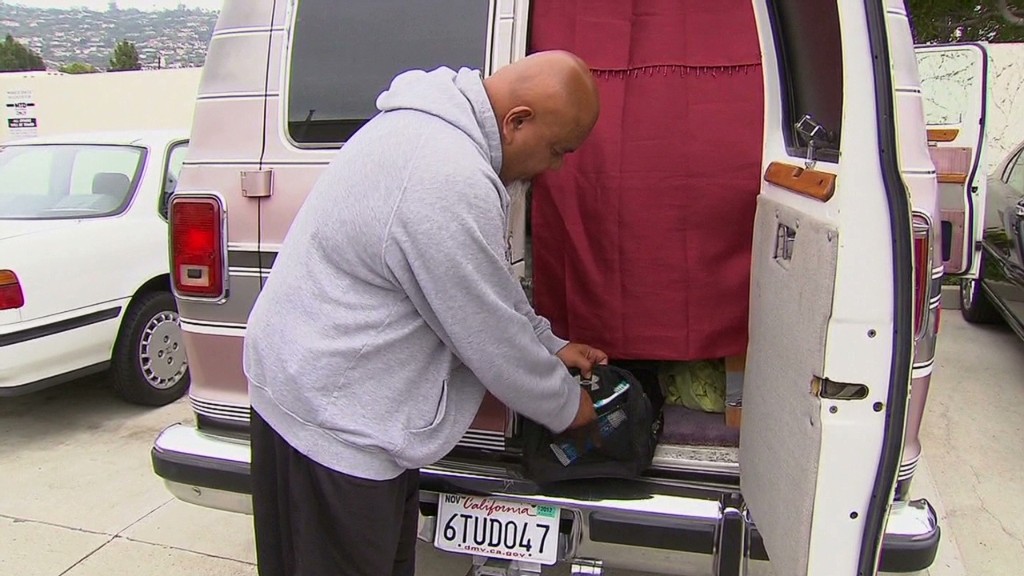
The unemployment rate has been falling lately in Los Angeles County, but not for the right reasons.
Last month, the jobless rate for the county fell to 11%, down from 12.4% a year earlier.
While that's far higher than the 8.1% unemployment rate for the nation as a whole, it nevertheless seems to show progress for the City of Angels... right?
Wrong. In Los Angeles, the falling unemployment rate is slightly misleading, just as it has been for the country overall.
When surveyed by the government, fewer L.A. residents say they're unemployed compared to a year ago. But it's not because they're finding jobs. It's because they're dropping out of the labor force altogether.
Just over 100,000 of workers have left the Los Angeles labor force since the beginning of the year, according to seasonally adjusted data from the California Employment Development Department.
The decline stands in stark contrast to other major metropolitan areas. New York, Chicago, Washington D.C., and San Francisco are all seeing their labor forces grow.
So what's going on in Southern California?
The real estate boom and bust hurt L.A. far more dramatically than those other cities, and a lack of construction jobs may partially explain why some workers have stopped looking for employment. Construction jobs have recently started to come back slowly, but in L.A. they're still off by about 50,000 jobs from 2007 levels.
Other large Western cities affected by the housing bust, like Las Vegas and Phoenix, have also reported declining unemployment rates over the last year, partly due to their shrinking labor force.
Check the unemployment rate in your state
The overall job numbers in Los Angeles are also heavily influenced by its immigrant population. As job opportunities have waned, particularly in low-skill sectors, so too has immigration to the city. Data from the Pew Hispanic Center shows immigration numbers have dwindled and vast numbers of Mexican immigrants have returned to Mexico
"In general, these folks have been moving back or simply not coming back as they have before, because the opportunities, particularly in the construction industry, are simply not as they used to be," said Christopher Thornberg, founding partner of Beacon Economics, a firm based in Los Angeles.

The "labor force" refers both to people who are working, as well as those who are actively searching for jobs. People who are retired, enrolled in college or staying home to take care of relatives are not included in the category.
When the labor force declines, it can be the result of a broad demographic trend -- for example, more Baby Boomers retiring, or more young people enrolling in college -- or it can be a worrisome sign of people getting discouraged, moving away and giving up on the job market altogether.
The latter seems to be the case in Los Angeles.
"This local economy has now gone through a couple of very severe cycles over the last 20 years, and we are concerned," said Robert Kleinhenz, chief economist at the Los Angeles County Economic Development Corporation. "We still have double digit unemployment rates here."
Still, economists caution not to look just at one piece of data. Los Angeles County residents say they have fewer jobs than they did a year ago, but when the government surveyed employers last month, companies reported creating 74,000 jobs over the year -- the largest increase in a decade.
"You've got to reconcile the shrinking labor force with the growing number of jobs, which is a conundrum," said Steve Levy, director and senior economist of the Center for Continuing Study of the California Economy.
Part of the disparity could mean that commuters, who live outside the county, are getting the new jobs that are being created.
"L.A. has hot industries, but those people may not live in Los Angeles," Levy said. "They may live in surrounding areas like Orange County."


